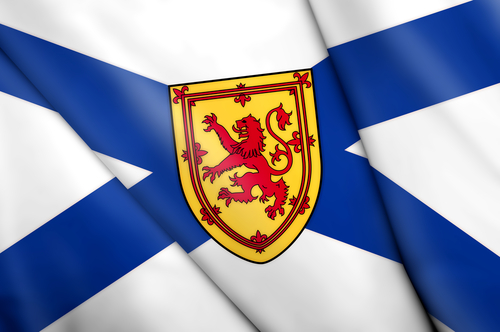H2O: Highlights from Oceans Week 2019
Monday, June 24, 2019
In case you missed it, June 1-9 was Oceans Week in Halifax, with the city turning its attention to the ocean community and Nova Scotia’s booming ocean technology sector. The annual H2O conference, hosted by the Ocean Technology Council of Nova Scotia (OTCNS), brought in companies and partners from across the province and around the world, with a record number of international delegates attending, representing 15 different countries.
The Centre for Ocean Ventures & Entrepreneurship (COVE) hosted its first 'demo day', attracting ocean technology companies from around the world to demonstrate their latest and greatest products. Companies included Rosborough Boats, Ocean Sonics, Precise Design, Kongsberg, Kraken Robotics, and Boston Engineering.
Here are a few key takeaways we learned during Ocean’s Week 2019:

[NSBI and partners at the H2O Conference]
1) There are exciting new funding opportunities for innovative ocean tech companies in Canada.
The federal government’s IDEAS program has committed $1.6B in funding over the next 20 years (approximately $90M per year) to fund R&D related to some of Canada’s most challenging defence and security challenges. As well, Innovative Solutions Canada is working with 20 different departments to fund a new program which includes $100M for entrepreneurs to scale, grow, and find creative solutions.
2) Norway is making strides in autonomous vessels.
Norwegian company Kongsberg Maritime is working with Yara Birkland to develop the world’s first autonomous and zero-emission container vessel. The ship is ready to launch in 2020, anticipated to replace 40,000 truck journeys every year in Norway.
3) Germany has launched a new underwater laboratory.
A new offshore test facility, Digital Ocean Lab, has launched in Northern Germany. This underwater R&D Lab develops expertise and innovation in underwater and subsea technologies. The underwater laboratory is predicted to be the heart and home base of a globally unique Ocean Technology Campus and centre for innovation.
4) Ireland and Scotland are ready for collaboration in renewable energy.
Ireland is home to the Lir National Ocean Test Facility, a custom-designed facility for offshore wind, wave and tidal energy. Through the Marine Institute, the industry is keen on partnering with Canadian organizations to help ocean technology companies and researchers collaborate. In Scotland, they’re building a new partnership between the National Research Council of Canada and the Offshore Renewable Energy Catapult, focused on using autonomous vessels and artificial intelligence to improve offshore renewable projects.
5) For the first time ever, a federal government "Oceans Outlook" event took place in Canada.
The Oceans Outlook panel discussion at H2O brought together various Canadian government departments to discuss the ways they can work with ocean technology companies. Departments like the National Research Council of Canada, Department of Fisheries and Oceans, Natural Resources Canada, and Defence Research and Development Canada presented plans to invest in marine research and how ocean technology could help fulfil their mandate.
The key takeaway?
It’s an ocean of opportunity out there. Both within Canada and internationally, the ocean technology sector is growing and there are opportunities for businesses to partner in sectors like aquaculture, marine renewable energy projects, naval defense, and ocean science.
Thanks to our cutting-edge companies, top researchers, partners at COVE, the Ocean Technology Council of Nova Scotia, and the opportunities of the Ocean SuperCluster, Nova Scotia is building an international reputation as #ExpertsInOceanTech.
Interested in learning more about how your company can take advantage of global opportunities in ocean tech? Sign-up for The Insider and The Bulletin to receive the latest trade missions, workshop, and B2B opportunities. #ThinkExport #NSBusiness





